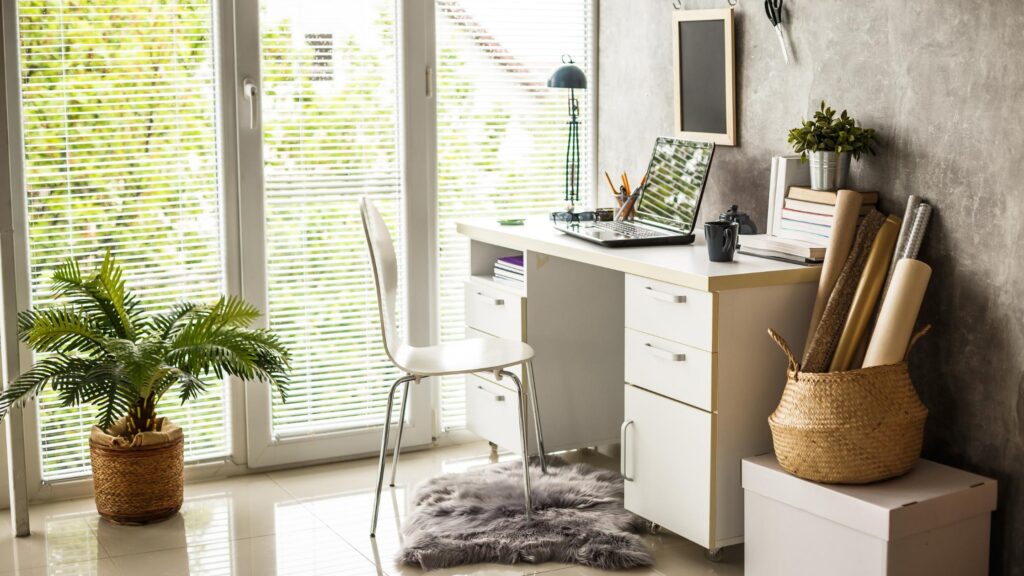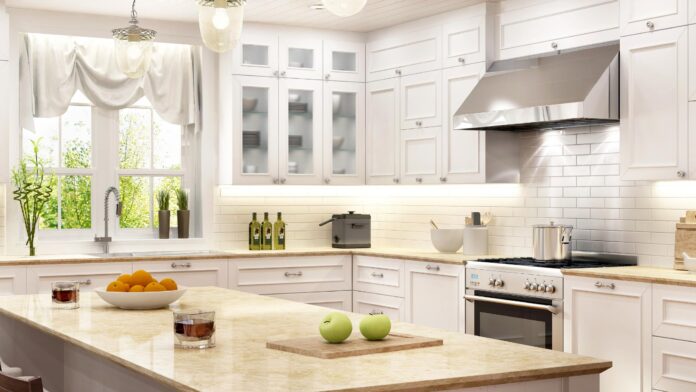Table of Contents
Maintaining a pristine home environment extends beyond the scope of occasional deep cleans; it fundamentally requires a reassessment and modification of daily routines that, unbeknownst to many, contribute to the accumulation of dirt and disorder. This article delves into the nuances of common habits, shedding light on how they play a pivotal role in undermining the cleanliness of your living space. By addressing and altering these behaviors, you can achieve a noticeably cleaner and more harmonious home, effectively embodying the principle of “Habits That Are Making Your Home Dirtier” through a proactive approach.
Detailed Habits That Are Making Your Home Dirtier
Bringing the Outside In
The act of wearing shoes inside the home is more than just a minor oversight; it’s a direct conduit for transferring a wide array of bacteria, toxins, and dirt from the outdoors into your sanctuary. Establishing a dedicated zone near your home’s entry for shoes can drastically reduce this transfer, maintaining the purity of your indoor environment.
The Invisible Eruption
Every time a toilet is flushed with the lid up, an invisible eruption of bacteria-laden aerosols disperses throughout the bathroom, settling on surfaces and creating a breeding ground for germs. The simple act of closing the lid before flushing can significantly mitigate this risk, safeguarding your bathroom’s sanitary conditions.
Vacuum Efficiency Sabotage
A vacuum cleaner with a full bag is counterintuitive, as it hampers the machine’s ability to suction dirt effectively, instead reintroducing dust into the atmosphere. Regular maintenance, including bag checks and replacements, is crucial for ensuring your vacuum performs optimally, enhancing the cleanliness of your floors and air.
The Peril of Neglected Towels
Kitchen and bathroom towels are indispensable for maintaining personal and culinary hygiene. However, their effectiveness diminishes when they are not laundered regularly, becoming hotbeds for microbial growth. Implementing a consistent washing schedule ensures these towels remain hygienic and effective in their roles.
The Drawback of Fresh Air
While opening windows can invigorate your home with fresh air, prolonged periods of openness invite dust, pollen, and urban pollutants inside, compromising indoor air quality and cleanliness. Moderating the duration and frequency of open windows can help maintain an equilibrium between enjoying fresh air and keeping pollutants at bay.
Pet-Induced Disorder
Pets, with their outdoor adventures, often return home with dirt, mud, and microscopic hitchhikers in their fur and on their paws. Establishing a routine for cleaning your pet after they’ve been outside can significantly reduce the amount of outdoor contaminants brought into your home, ensuring both your pet and living space remain clean.
The Chaos of Junk Drawers
What starts as a convenient spot for miscellaneous items can quickly transform into a cluttered and dusty mess. The habit of allowing drawers to overflow with unused items not only harbors dust but also complicates finding necessary items. Periodic decluttering and organization can prevent this accumulation and maintain a sense of order.
The Fallout of Floor Laundry
Discarded clothing on the floor acts as a magnet for dust, dirt, and musty odors, especially when damp items are involved, creating potential for mold and mildew growth. Utilizing a hamper and adhering to a laundry schedule can circumvent these issues, keeping your living space neat and hygienic.
Overlooking Air Vents
Air vents, often ignored due to their out-of-sight nature, play a crucial role in home air quality. Neglecting to clean these can lead to dust accumulation and circulation, affecting not only cleanliness but also respiratory health. Regular cleaning ensures vents are not obstructing airflow or contributing to dust buildup.
The Unmade Bed Dilemma
An unmade bed may seem harmless but actually serves as a haven for dust and allergens to settle. The routine of making your bed each morning can significantly reduce this accumulation, contributing to a cleaner and more inviting bedroom ambiance.
The Cycle of Dirty Cleaning Tools
Employing dirty mops, cloths, or sponges in your cleaning routine ironically spreads dirt and bacteria rather than eliminating them. Ensuring these tools are cleaned or replaced regularly can dramatically improve the effectiveness of your cleaning efforts.
Wet Laundry Linger
Leaving laundry damp in the washer not only fosters a breeding ground for mold and mildew but also imparts a musty odor to fabrics. Promptly moving clothes to the dryer or hanging them to dry prevents these issues, preserving the freshness and longevity of your garments.
Disarray in the Closet
A cluttered closet doesn’t just conceal dust; it also complicates cleaning and locating items. Adopting an organizational system that allows for easy access and minimizes clutter can drastically reduce dust accumulation and enhance the functionality of your storage spaces.
The Overstayed Welcome on the Drying Rack
Clothes left to linger on a drying rack after they’ve dried collect dust, undermining the cleanliness achieved through washing. Efficiently storing clothes away after drying ensures they remain clean and ready for wear.
Ignoring High-Touch Surfaces
Not regularly disinfecting doorknobs, light switches, and countertops allows germs and bacteria to thrive, contributing to a dirtier home environment.
Skipping Under-Furniture Cleaning
Neglecting the areas under furniture can lead to accumulations of dust, pet hair, and allergens, making your home dirtier over time.
Overlooking Small Appliances
Small kitchen appliances like toasters, coffee makers, and microwaves often harbor crumbs, spills, and grease, contributing to a less hygienic kitchen.
Letting Clutter Accumulate
Allowing papers, toys, and other items to pile up creates more surfaces for dust to settle and makes cleaning more challenging.
Infrequent Dusting of Decor and Blinds
Dusting around decor, picture frames, and blinds is often overlooked, allowing dust and allergens to accumulate and contribute to a dirtier living space.
Using the Same Sponge for Multiple Tasks
Using the same sponge for dishes, countertops, and other cleaning tasks can spread bacteria and grime, making surfaces dirtier instead of cleaner.

Conclusion
Recognizing and modifying “Habits That Are Making Your Home Dirtier” is not merely about cleanliness; it’s about cultivating a living space that reflects health, hygiene, and harmony. Through mindful changes to daily routines, the goal of a cleaner, more inviting home becomes an attainable reality, offering a sanctuary that supports well-being and comfort.
FAQs
Q: What are some common habits that make my home dirtier?
Common habits include not removing shoes at the door, not regularly washing hands, leaving dishes unwashed, not dusting frequently, and neglecting to clean high-touch surfaces like doorknobs and light switches.
Q: How can wearing shoes indoors contribute to a dirtier home?
Wearing shoes inside can track in dirt, bacteria, and toxins from outside, spreading these throughout your home and contributing to a dirtier living environment.
Q: Why is it important to close the toilet lid before flushing?
Closing the toilet lid before flushing prevents the spread of microscopic bacteria and water particles into the air, which can settle on surfaces in your bathroom, making it dirtier.
Q: How often should I clean under my furniture?
It’s recommended to clean under furniture at least once a month to prevent the accumulation of dust, pet hair, and other allergens that can contribute to a dirtier home.
Q: Can leaving laundry undone make my home dirtier?
Yes, leaving laundry, especially damp laundry, undone can create breeding grounds for mold and mildew, adding to the dirtiness of your home.
Q: What is the impact of not cleaning kitchen appliances regularly?
Not cleaning kitchen appliances regularly can lead to the buildup of food particles and grease, attracting pests and contributing to a less hygienic and dirtier home.
Q: How can I prevent my home from getting dirtier?
Prevent your home from getting dirtier by adopting cleaner habits such as removing shoes indoors, regularly washing hands, promptly doing dishes, frequently dusting, and cleaning high-touch surfaces. Also, address areas often overlooked, like under furniture and small kitchen appliances, to maintain a cleaner living space.



